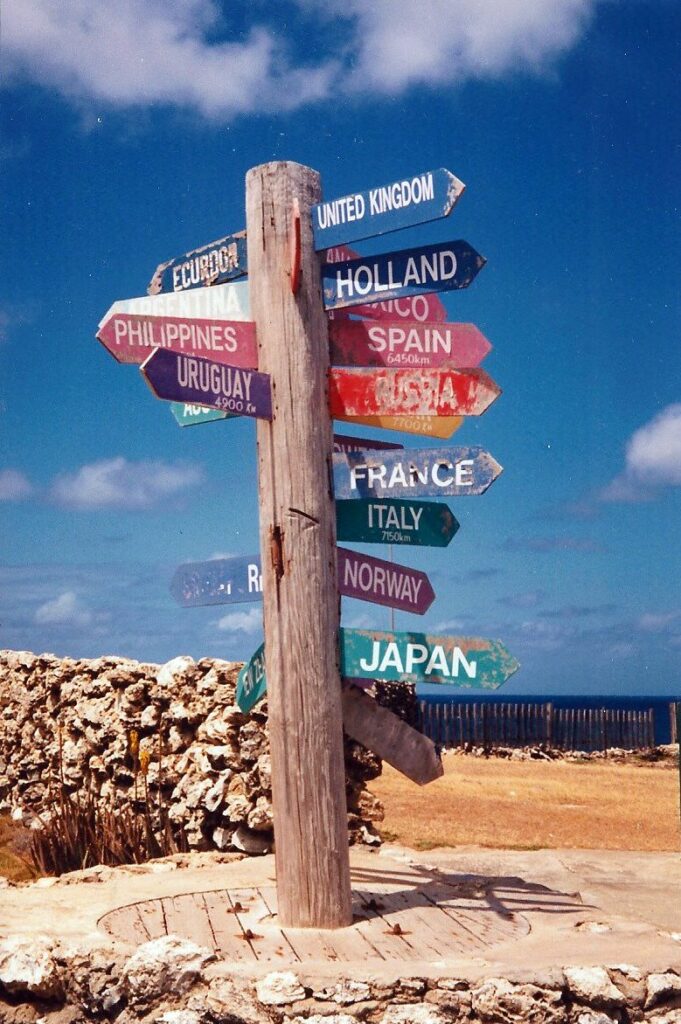
International PR – so many countries, so many customs
PR & Marketing
Posted 31 Mar 2016
According to the highly appreciated handbook ABC des Journalismus (The ABC of Journalism), press releases influence approximately four of five newspaper articles. Opinions might differ on the actual impact of public relations on traditional journalism but fact is: It is essential to have a good PR strategy at hand when settling down in today’s corporate landscape. After all, your aim is to generate media attention and make your company widely known to the public. In a corporate communications department and in cooperation with a PR agency you have to send out press releases, answer journalists’ requests, organize media events and the list goes on and on.
However, with increasing globalization German companies do not only target the German market anymore, but go way beyond it. Especially in the technology sector an international orientation is necessary in order to keep up with competitors. This means that companies establish new sites within Europe, but also in the emerging BRICS states to try to make themselves known abroad. Reports of the Deutscher Industrie und Handelskammertag (DIHK) show that 60 percent of German companies have a relatively high export turnover which constitutes more than 20 percent of their total sales; even medium-sized companies are averagely represented in 16 different markets.
This internationalization means kind of a new beginning for the public relations department. The already elaborated strategy cannot be adapted for any other country because the various ways of working and the business cultures are simply too different. Moreover, cultural differences like the perception of punctuality and reliability, an issue we Germans attach great importance to, play a major role. But to get acquainted with the different working methods in the field of PR and journalism, you don’t have to locate your company in a far-off exotic country. It is sufficient to just take a closer look at our European neighbors and the United States.
There is something that the press in the DACH region (Germany, Austria, Switzerland) and in France have in common: they prefer information that is formulated in a neutral way – quite the opposite of the American practice. Press releases in the United States are mostly characterized by a flowery language that tends to exaggerate. For example, every company is a “leader” in its sector. Though, European journalists and editors are rather deterred by these set phrases and therefore, they don’t pay much attention to the information. Of course, itis the same case vice versa.
However, there are also some aspects that need to be considered within Europe. Firstly, you should absolutely not translate press releases word by word. Apart from the fact that you risk to include wrong formulations, the media and readers abroad are more interested in local news than in information from other European countries; this also applies to German editors. Thus, the content of the press release has to be localized, too. You should also keep in mind that certain topics are really popular in some countries, whereas they may cause skepticism among foreign journalists. A good example is the topic of betting and gambling which would result in very different reactions in Germany and Great Britain.
Especially when it comes to face-to-face meetings between representatives of the press and companies, habits differ from country to country. Because of this, it is necessary to find out about a country’s media landscape at first. In contrast to Germany, where editors work in all major cities (Berlin, Frankfort, Hamburg, Munich…), the major part of the British press is located in London (ca. 80%). (Indeed, this doesn’t mean that the British capital is representative for the whole United Kingdom!) It is the same case in France where the press is very Paris-centered.
It is clear that you have to take this fact into consideration when arranging a personal meeting. In general, it is advisable to not only take an international manager to meetings and interviews but also a local officer in order to satisfy the press’s interest in national news.
If you take a look at our French neighbors, you can find further peculiarities. Some of them may seem like typical clichés of France and the French people, but they are actually part of the everyday work life in the sector. First of all, press material should always be available in French to ensure it will really be read and used; the same applies to Germany by the way. Unlike Britons and Americans, the French prefer face-to-face meetings instead of telephone interviews. Editors are happy to take some time having lunch in a little bistro and talking to company representatives. Thanks to the centralization of the press, it is quite easy to respond to this wish. However, you should not be surprised if the French representative arrives 15 minutes too late to the appointment, as this is still considered on time. The pretty extensive follow ups for events such as fairs or meetings are probably related to this fact; you often remind the journalists of the event again on the same day!
But as complicated as it might appear to remember all of these various habits and peculiarities – if you respect these pieces of advice, there is no reason why your international public relations strategy shouldn’t be a success:
To successfully provide the market and the foreign press with information, a high flexibility is needed. It happens quite often that the regular working hours fall prey to the fast pace of the sector. Because who can refuse the order to ‘quickly’ send out a press release? – Even if it is on a public holiday or, due to time shift, several hours after the regular end of the working day.
But thanks to modern technology and working methods like home office, this doesn’t pose a problem either.